Mom 101
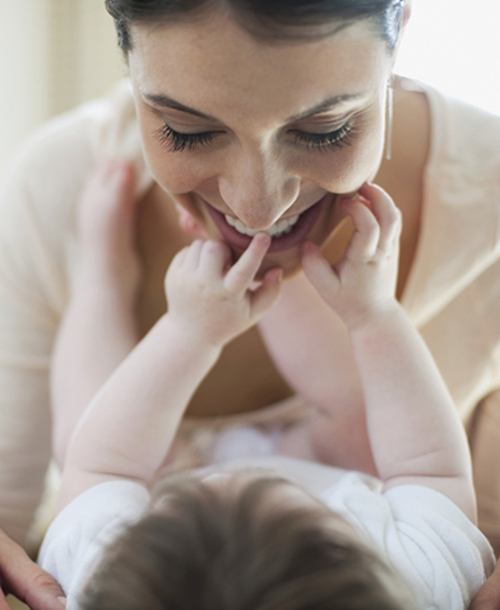
You can't really prepare to become a mom. "It's like getting a whole new identity," says Dr. Jennifer Wider, author of "The New Mom's Survival Guide." "You have to adjust to this new self." You also have to adjust to changes in your body, your emotions, your schedule and your laundry routine. And while you can't learn everything ahead of time, you can get started on a few essentials.
Here are 10 things every new mom needs to know.
It's OK to Do Nothing
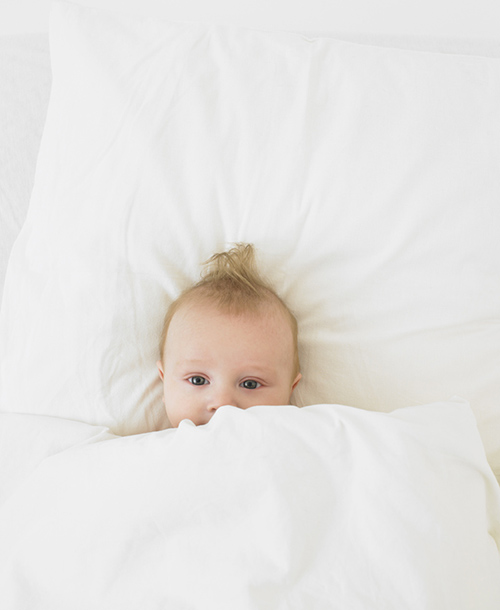
Accept it now: You won't be organizing the closets during your maternity leave. Giving birth is arguably the hardest thing your body will ever do, and you'll need time to recover. Plus, very few newborns nap happily alone for hours.
"You need to let yourself do nothing," says registered nurse Rachelle Bernard, who's also a parent educator with Let Mommy Sleep. She recommends finding a TV series on Netflix to watch while snuggling your newborn. Enjoy resting now, and you'll bounce back a lot faster.
Newborns Eat More Often Than You Think
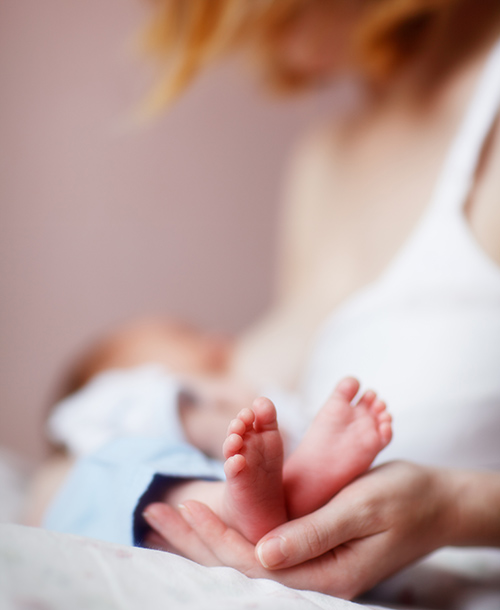
Bottle-fed babies need small, frequent feedings, and breast-fed babies need to eat even more often. Let go of measurements and timing, and let baby take the lead.
"Don't get attached to the clock," says Bernard. Watch baby instead. Learn the early signs of hunger, like rooting and sucking fingers, and offer before crying starts.
You Also Need to Eat More Than You Think

If you're breast-feeding, you need an extra 500 calories a day. And even if you're bottle-feeding, your body needs nutrition to recover from pregnancy. But when you're busy taking care of baby, it's easy to forget about yourself—and suddenly realize at 4 p.m. that you haven't had a bite all day.
Stock up on healthy snacks you can eat with one hand, and keep water bottles everywhere.
Your Postpartum Body Is Still Changing

You expected the stretch marks, but you might not expect your skin to break out like a teenager's. "Surging hormone levels increase oil gland production," explains Wider.
Another common problem is skin tags—small flaps of skin that can appear on your chest, neck or thighs. You'll also lose hair. And just like your belly, which will take at least nine months to get back to normal, your swollen feet may never get back to their pre-pregnancy size.
Baby Doesn't Need a Lot of Clothes
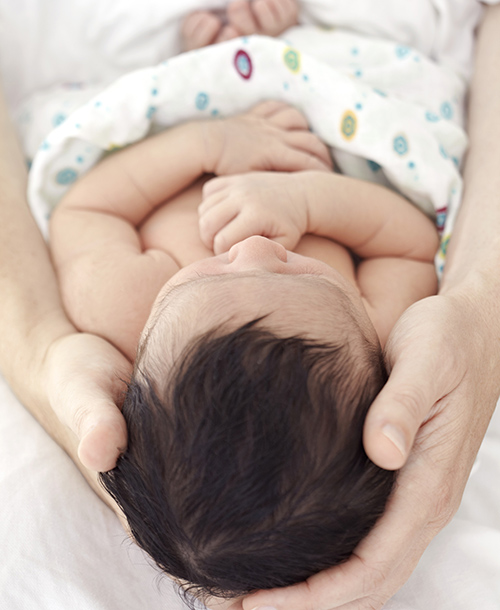
Overheating is dangerous for newborns, so don't wrap baby in lots of layers. He only needs one more layer than you're wearing. So if you're wearing a long-sleeve shirt, then a pajama gown and a swaddle blanket is plenty for baby.
And although hats are great for extra warmth, take them off when you go to bed. "I see hats move a lot while babies are sleeping," says Bernard. "If you're both asleep, don't use a hat."
'New Mommy Issues' Could Be Something More

Almost 10 percent of women suffer from postpartum thyroiditis, a temporary thyroid problem that often occurs postpartum. Others suffer from anemia. But the symptoms—feeling exhausted, having dizzy spells, difficulty losing weight, racing heart and constipation—can all be normal postpartum issues.
How to tell the difference?
"Ask your doctor to test your thyroid and your iron," says Wider. Both of these conditions "are very treatable."
Diaper Rash Comes From More Than Diapers
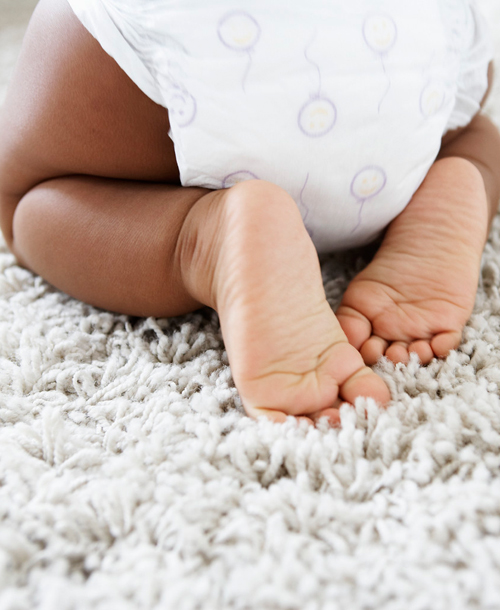
Your newborn's skin is incredibly sensitive and prone to irritation. Not changing often enough is usually the culprit, but sometimes it's the wipes or the type of diaper. Try rinsing wipes off with warm water before you wipe baby, or use wet cotton balls or paper towels. And if the rash doesn't improve with frequent changes, good ointment and regular airing of the skin, try a different brand of diaper.
Swaddling and White Noise Are Your New Best Friends
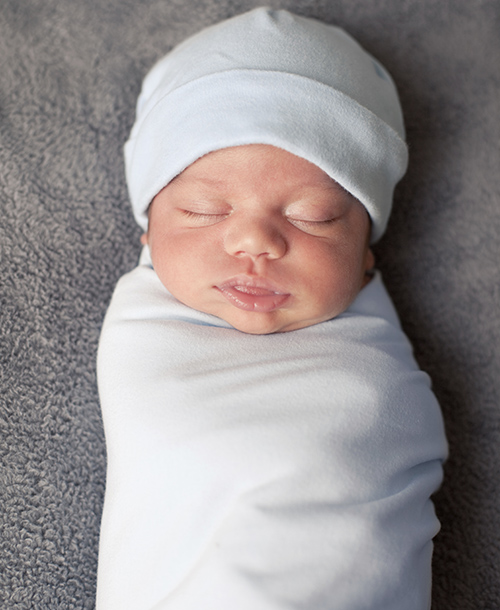
If your baby startles easily, swaddling and white noise are lifesavers. If you can't get the corners of the swaddle blanket tucked in right, try a blanket with velcro. And before you run out to buy a white-noise machine, search for a white-noise app on your smartphone.
"There are so many ways to get white noise for free," says Bernard. Find a sound that's soothing for you as well as baby—it can help you relax, too.
Postpartum Depression Doesn't Always Feel Like Depression
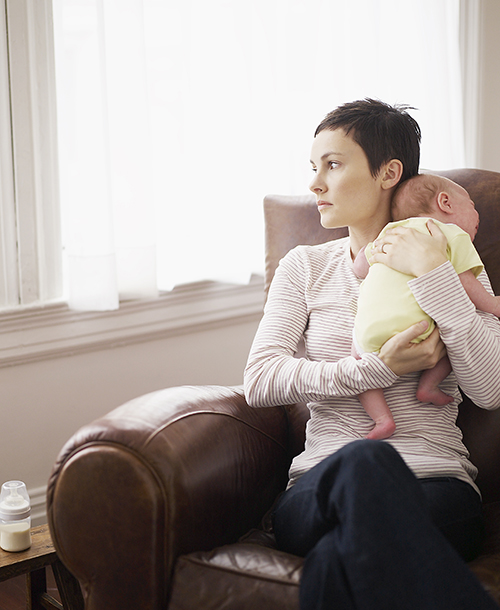
Speaking of relaxing, it's normal to feel overwhelmed, sad, angry and even panicky at times. But if sadness, anxiety or anger are getting in the way of your daily life, then you need to talk to someone.
"Anger, anxiety or feeling on edge can all be forms of postpartum anxiety," says Wider. If your emotions are making it hard for you to get through the day, you need to talk to someone.
You're Not Alone
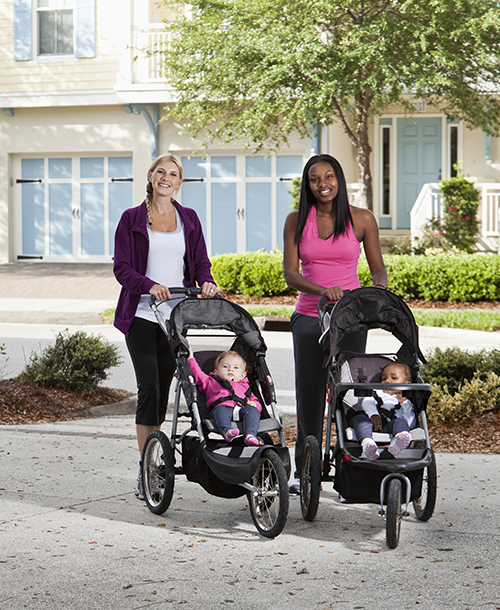
It's easy to feel isolated, but you don't need to stay that way. "Get out with your baby and do stuff together with other moms," says Bernard. "Find a support group." Look for a neighborhood playgroup for kids the same age or a mommy-and-me class. The topic doesn't matter; what matters is that you get connected.
"Until you've spoken to someone who's been there, you think you're the only one with these problems," says Wider. "But you're not the only one. You're not alone."



